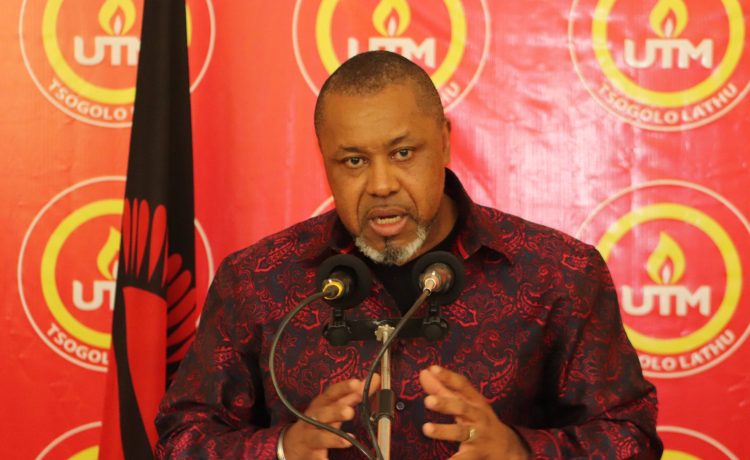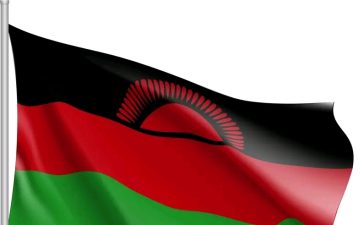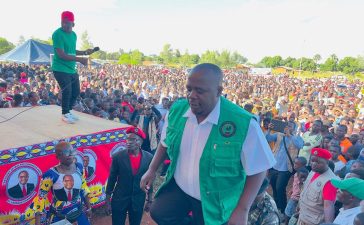In the realm of politics, where ideals and aspirations ought to guide leadership, the reality often reveals a disturbing trend: the operation of new emerging political parties as personal entities. This is a manifest erosion of democratic principles which is often associated with political parties that are emerging after multiparty was obtained in 1994. It is quite an irony of what multiparty-inspired political formations ought to be.
The United Democratic Front (UDF) which brought about the multiparty era narrowly escaped this pandemic by embracing internal democracy within the party, a political culture that cannot be said about the Democratic Progressive Party (DPP) which has on countless times undemocratically purged everyone with questionable loyalty to its leader Peter Mutharika. The DPP story echoes similar with UTM where, as it has been discovered now, its leader was ultimate formulator and implementer of all critical decisions on how to raise and use money for the organization. The perils, however, are costlier in that not only is it detrimental to perfect leadership transition but also breeds chaos and uncertainty, particularly evident in situations like the current crisis facing the UTM following the death of its leader, Saulos Chilima.
Political parties are meant to stand as collective entities representing the hopes and aspirations of their members. However, when leadership becomes synonymous with one individual, the party’s identity becomes dangerously intertwined with the leader’s personal brand. Delegate power, rather than distribute it, and you create a fragile structure vulnerable to collapse when that leader exits the stage—be it through resignation, disgrace, or, as tragically occurred in Chilima’s case, death.
As UTM grapples with a staggering K4 billion debt purportedly contracted by Chilima’s allies without formal party endorsement, one question looms large: who inherits this debt which is said to have been obtained without the party’s endorsement and whose expenditure cannot be traced to the party’s interests? The absence of clear protocols regarding financial responsibilities casts a dark cloud over the party’s future.
Running a party like a personal fiefdom breeds a culture of selfishness and authoritarianism that stymies dissent and critical debate. When decision-making resides in the hands of a single leader, democratic values are stifled, leading to a toxic environment where inner factions struggle for power rather than focus on collective goals. The troubling infighting within UTM, as factions contest for dominance amid leadership uncertainty, exemplifies this chaotic reality. Consensus, once a cornerstone of political cooperation, becomes a fading memory as ambitions clash.
Such dictatorial leadership typically expresses itself through a disregard for the party’s constitution and a lack of accountability. The reckless borrowing of funds without proper vetting or approval highlights a fundamental misalignment between the leader’s objectives and the party’s collective interests. The personal ambitions of a few individuals can burden entire organizations, leading to public cynicism and disengagement. Members are left alienated while self-serving agendas take precedence over party ideology.
The aftermath of Chilima’s demise reveals significant vulnerabilities that UTM was exposed to during his personal rule. The very foundation of the organization has been shaken to its core, leading to a scramble for power and direction. Without a solid infrastructure based on collective leadership, there is no clear path forward, only a chaotic struggle for survival, often at the expense of the party’s original vision and values. It is now running to the DPP, begging to be taken care of while pledging loyalty of votes in next year’s election. This looks like shameful indeed.
It is imperative for political parties to understand that they cannot function effectively as personal property. Leadership should be a shared responsibility, grounded in democratic values that empower members and foster collective decision-making. Transparency, accountability, and a commitment to party ideology should frame every political action, ensuring that the void left by one individual can be filled by a coalition of inspired leaders.
As we reflect on the challenges currently plaguing UTM, it becomes clear that the party’s future hinges not only on who inherits the debt but also on whether it can redefine its structure and culture away from the personality-driven model that has led to its current plight. The stakes are high; the well-being of a vibrant democracy demands that political organizations operate on principles of inclusivity and shared governance. If we hope to foster progress and accountability in our political landscape, we must ensure that no individual can wield unchecked power, lest we pay the price when that leader is no longer there.













